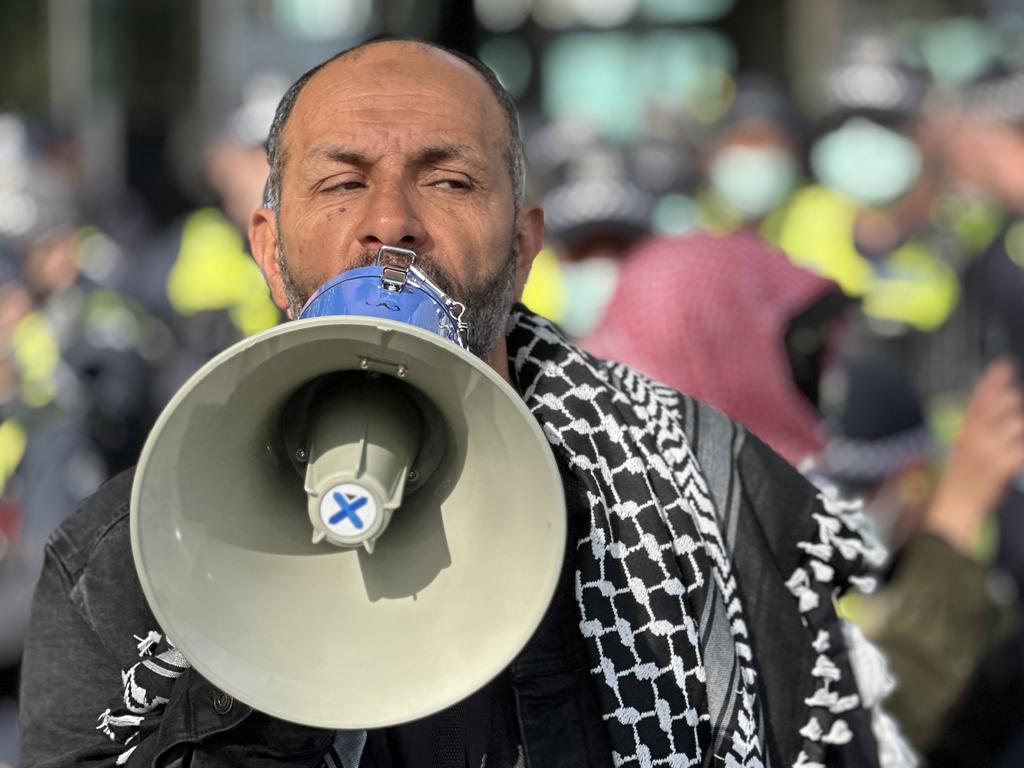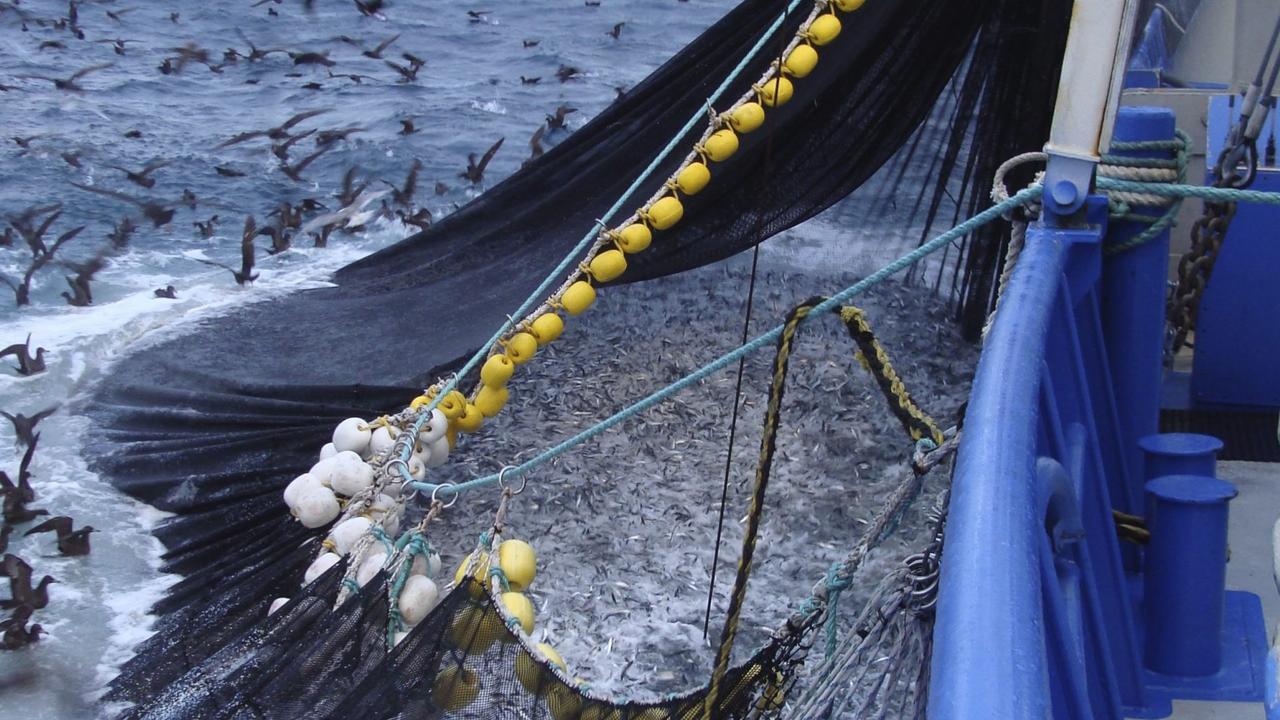Pro-Palestinian leader’s son among accused in brutal kidnapping case
The son of a prominent pro-Palestinian rally leader will face trial accused of a hammer assault and kidnapping linked to allegations of revenge in Melbourne’s western suburbs.
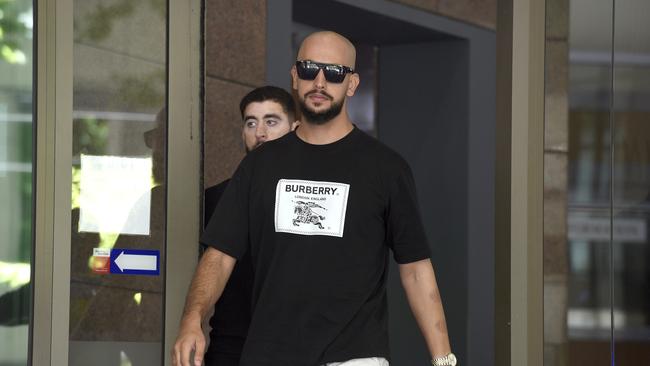
The son of prominent pro-Palestinian Melbourne rally organiser and businessman Ihab Alazhari has been identified as a co-accused in a high-profile bloody kidnapping and assault case.
Ibrahim Al Alazhari, 25, had a suppression order protecting his identity revoked late last year, with his co-accused Laura Allam, 27, and Mohammad Sharab, 37, facing a slew of kidnapping and assault charges.
All three appeared at the Melbourne Magistrates Court for a committal hearing on Tuesday before magistrate Brett Sonnet.
The victim, engineer Nemer Abusamha, 31, was allegedly abducted by the trio in Melbourne’s western suburbs in February last year and bashed with a hammer to the head.
It’s alleged Mr Abusamha was pulled from a car near an intersection in Melbourne’s west on February 16. He was then allegedly placed in another car, assaulted and robbed before being released west of Melbourne’s CBD.
Defence lawyers acting on behalf of the accused trio grilled clinical and forensic experts on Tuesday, arguing that there had been several inconsistencies in evidence provided to the court in relation to DNA samples and injuries.
Clinical forensic physician Jo Ann Parkin was shown a picture of Mr Abusamha’s head injuries and asked why his head was not “cracked open” after allegedly being hit with a hammer at least 10 times.
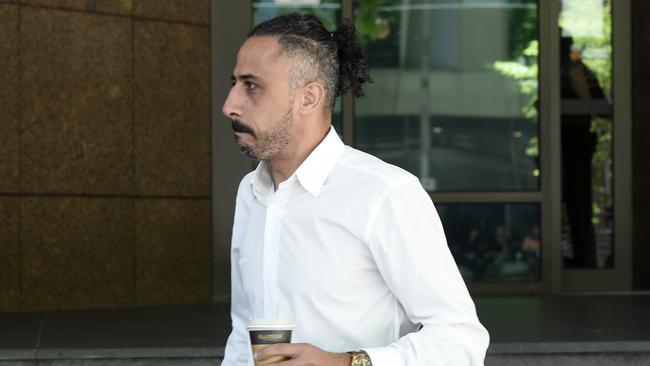
“Depending on the force that’s been applied (and) depending on the movement of the individual, you can get varying levels of impact causing injuries,” Dr Parkin told the court. “It’s possible a hammer has been used in that scenario, I can’t exclude it.”
Dr Parkin, who provided a nine-page statement to the matter in May last year, said there were no fractures to Mr Abusamha’s skull but noted a “collection of blood” on his scalp.
Mr Sharab’s lawyer, Emily Clark, said the victim did not show any signs of significant injuries from hammer blows that were visible from CT scans, saying the likelihood of inconsistencies in the brief of evidence could mean he was exaggerating.
In his cross-examination last year, Mr Abusamha described attempts by one of the offenders to pluck his eyes out using their nails, which was disputed in court on Tuesday. “Was there any injuries to Mr Abusamha’s eye or around the eye area,” Ms Clark asked Dr Parkin.
“No, they haven’t mentioned anything about the eyes, the only thing that’s mentioned is bruising to the face,” she said. “When there is nails used around the eyes, you may well get lacerations, you may well get abrasions ... It’s going to be varied, I guess.”
Victoria Police informant Constable Daniel Reece was also questioned about inconsistencies in the brief of evidence, being grilled for more than an hour by Ms Allam’s barrister, Ran Zaydan, who pressed the senior cop on key issues relating to gathering evidence.
The court was told a possible motive for the alleged kidnapping plot was Mr Abusamha’s sexual activity with multiple women from Melbourne’s Palestinian community, with allegations of sexual assault being levied.
No charges have been laid against Mr Abusamha.
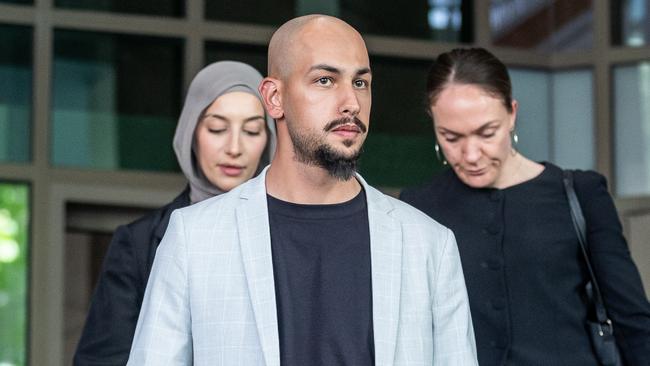
Constable Rees told the court he was later made aware by Melbourne’s Burgatory restaurant chain owner Hash Tayeh, a prominent Palestinian-Australian community member, that there was an allegation of sexual assault against Mr Abusamha.
Ms Zaydan asked Mr Sonnet for the assault charges to be thrown out because there was insufficient evidence for a jury to convict her client, Ms Allam.
This included that Mr Abusamha changed his story when he gave evidence to Melbourne Magistrates Court, saying Ms Allam did not stomp on his head and he was not sure she was at the park during the ordeal.
Ms Zaydan did not apply for the kidnapping and false imprisonment charges to be withdrawn because she was waiting for police to send her phone data analysis, she told the court.
Mr Sonnet agreed the case on the assault charges was “weak” but decided to still commit Ms Allam to trial. “The prosecution case is relatively weak but I’m unable to make a discharge order,” he said. “You may want to apply to the crown to say Magistrate Sonnet said the case against my client is weak.”
All three accused were committed to stand trial in Melbourne’s County Court in February after pleading not guilty.


